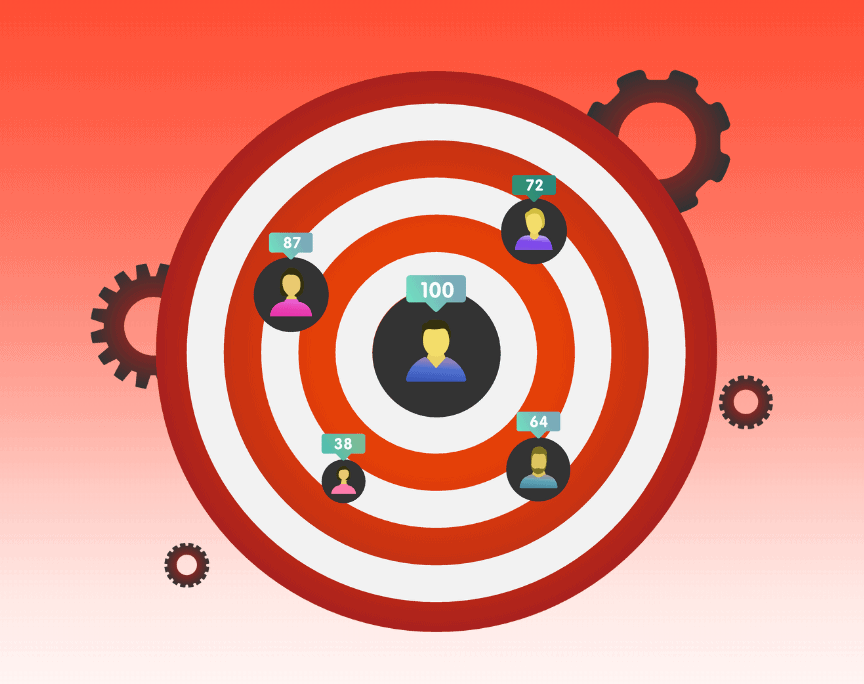In today’s hyper-competitive digital landscape, investing in the right digital marketing strategy is non-negotiable. But with a dizzying array of pricing packages from agencies and consultants, how can businesses confidently choose the best fit? Evaluating digital marketing pricing packages is more than just comparing price tags—it’s about understanding value, aligning goals, and ensuring measurable results.
This comprehensive guide will walk you through the critical factors to consider when assessing digital marketing pricing packages. Whether you’re a startup looking to maximize every dollar or an established brand seeking scalable growth, this article will equip you with the insights needed to make informed, strategic decisions.
Contents
- 1 Understanding the Components of Digital Marketing Pricing
- 2 Aligning Pricing Packages with Your Business Goals
- 3 Decoding Value: Beyond the Price Tag
- 4 Evaluating ROI and Measuring Success
- 5 Common Pitfalls to Avoid When Evaluating Pricing Packages
- 6 Final Thoughts: Making an Informed Investment
- 7 Partner with Abstrakt Marketing Group for Results-Driven Digital Marketing
Understanding the Components of Digital Marketing Pricing
Before diving into price comparisons, it’s essential to break down what digital marketing pricing packages typically include. Digital marketing is a multifaceted discipline, and pricing structures reflect the complexity and breadth of services offered. As businesses increasingly turn to digital platforms for growth, understanding these components becomes vital for making informed decisions.
Core Services Typically Included
Most digital marketing packages bundle a combination of the following services:
- Search Engine Optimization (SEO): Enhancing organic search visibility through keyword research, on-page optimization, link building, and technical SEO audits.
- Pay-Per-Click Advertising (PPC): Managing paid campaigns on platforms like Google Ads, Facebook Ads, and LinkedIn Ads to drive targeted traffic.
- Content Marketing: Creating and distributing valuable content such as blog posts, videos, infographics, and whitepapers to engage and convert audiences.
- Social Media Management: Developing and executing social media strategies, including content creation, community management, and paid social campaigns.
- Email Marketing: Designing email campaigns, automations, and newsletters to nurture leads and retain customers.
- Analytics and Reporting: Tracking campaign performance, generating insights, and providing actionable recommendations.
Understanding which services are included—and which are optional or add-ons—is fundamental when evaluating pricing packages. Some agencies offer all-in-one packages, while others allow a la carte selections tailored to your specific needs. Additionally, the quality and expertise behind these services can vary significantly between agencies, making it crucial to assess their track record and client testimonials before committing.
Furthermore, the landscape of digital marketing is continually evolving, with new tools and strategies emerging regularly. For instance, the rise of artificial intelligence in content creation and data analysis has transformed how agencies approach SEO and PPC campaigns. As such, staying informed about the latest trends and technologies can help you better understand the value of the services included in your pricing package, ensuring that you receive the most effective strategies for your investment.
Pricing Models Explained
Digital marketing pricing often follows one of these models:
- Monthly Retainer: A fixed monthly fee covering a predetermined scope of work. This model is common for ongoing campaigns and long-term partnerships.
- Project-Based Pricing: A one-time fee for a specific project, such as a website redesign or a product launch campaign.
- Performance-Based Pricing: Fees tied to specific outcomes, like leads generated or sales conversions. This model aligns agency incentives with your business goals but can be complex to structure.
- Hourly Rates: Charging by the hour for consulting or ad hoc services. This approach offers flexibility but can lead to unpredictable costs.
Knowing the pricing model helps you anticipate budget commitments and evaluate whether the agency’s approach aligns with your financial planning and risk tolerance. Additionally, it’s important to consider the potential for hidden costs or additional fees that may arise, particularly with performance-based and hourly models. Some agencies might charge extra for services like advanced analytics or additional revisions, which can impact your overall budget.
Moreover, the choice of pricing model can also reflect the nature of the relationship you wish to establish with your agency. For instance, a monthly retainer often fosters a collaborative partnership, allowing for ongoing adjustments and optimizations based on real-time data. In contrast, project-based pricing may suit businesses looking for specific deliverables without the commitment of a long-term contract. Understanding these nuances can help you select a pricing structure that not only fits your budget but also aligns with your strategic marketing goals.
Aligning Pricing Packages with Your Business Goals
One of the biggest mistakes companies make is choosing a digital marketing package based solely on cost without considering strategic alignment. The most expensive package isn’t always the best, and the cheapest often lacks critical components.
Define Clear Objectives Before Comparing Packages
Start by outlining your marketing goals. Are you focused on brand awareness, lead generation, customer retention, or e-commerce sales? Each objective demands different tactics and resource allocation.
For example, a B2B SaaS company aiming to generate qualified leads through LinkedIn might prioritize account-based marketing and PPC campaigns targeting decision-makers. Conversely, a retail brand looking to boost online sales may emphasize social media advertising and influencer partnerships. Understanding the nuances of your target audience is crucial; this means not only identifying who they are but also what platforms they frequent and what messaging resonates with them.
Match Services to Goals and Evaluate Depth of Expertise
Once your goals are clear, scrutinize how each pricing package supports them. Does the package include the channels and tactics proven to deliver results in your industry? Are the agency’s case studies and client testimonials relevant to your niche?
Expertise matters. According to a 2023 survey by HubSpot, 63% of marketers cite lack of expertise as a top barrier to digital marketing success. Choosing a package that includes access to specialists—whether SEO strategists, content creators, or paid media experts—can dramatically improve ROI. Furthermore, consider the agency’s approach to ongoing education and adaptation; the digital landscape is ever-evolving, and an agency that prioritizes staying updated with the latest trends and technologies can provide a significant advantage.
Consider Scalability and Flexibility
Your business needs will evolve, especially as digital marketing campaigns start to yield results. Evaluate whether the pricing package allows for scaling up efforts or pivoting strategies without exorbitant fees or contractual penalties.
Look for agencies that offer modular packages or flexible add-ons, enabling you to expand services like video marketing or influencer outreach as your budget and goals grow. Additionally, consider how the agency measures success and reports on performance; transparent metrics and regular updates can help you gauge the effectiveness of your campaigns and make informed decisions about future investments. This adaptability not only fosters a more collaborative relationship but also ensures that your marketing strategies remain aligned with your business objectives as they evolve over time.
Decoding Value: Beyond the Price Tag
Price is a crucial factor, but value is what drives sustainable success. A low-cost package that delivers mediocre results can cost more in lost opportunities than a premium package that drives measurable growth. Understanding the true value of a service requires a deeper analysis of what is being offered beyond mere numbers. It’s essential to consider the long-term impact of the investment, including brand reputation, customer loyalty, and market positioning.
Assess Deliverables and Service Quality
Request detailed breakdowns of deliverables included in each package. For example, if SEO is part of the offering, how many keywords will be targeted? What types of content will be produced, and at what frequency? How often will performance reports be provided? Furthermore, inquire about the methodologies used to create content and optimize campaigns. Are they employing best practices in keyword research and audience targeting? This level of detail can help you gauge whether a package truly meets your needs or if it’s simply a one-size-fits-all solution.
Quality matters as much as quantity. A package promising 20 blog posts per month may sound attractive, but if the content lacks depth, originality, or SEO optimization, it won’t move the needle. Consider the expertise of the writers and the research process behind the content. Engaging with industry experts or utilizing data-driven insights can significantly enhance the relevance and effectiveness of the material produced, ultimately leading to better engagement and conversion rates.
Transparency and Communication
Effective digital marketing requires ongoing collaboration and clear communication. Evaluate how agencies handle reporting, meetings, and responsiveness. Transparent pricing with no hidden fees is a hallmark of trustworthy partners. Additionally, assess the agency’s willingness to adapt strategies based on performance metrics and client feedback. A responsive agency that values your input can create a more tailored approach, ensuring that your marketing efforts are aligned with your business goals.
Agencies that provide real-time dashboards or monthly strategy sessions empower clients to stay informed and involved, ensuring alignment and agility. This level of engagement not only fosters a stronger partnership but also allows for quick pivots in strategy when market conditions change or new opportunities arise. Regular check-ins can also help in reinforcing the agency’s commitment to your success and in building a collaborative atmosphere that drives innovation.
Technology and Tools Included
Top-tier digital marketing agencies leverage advanced tools for automation, analytics, and optimization. Ask which platforms are included in the package and if there are additional costs. Understanding the technology stack can provide insights into the agency’s capabilities and the potential for scalability. For instance, access to premium SEO tools like SEMrush, content management systems, or marketing automation platforms can enhance campaign effectiveness and provide valuable insights. Moreover, inquire about the training and support offered for these tools, as a knowledgeable team can maximize their potential.
Additionally, consider the integration capabilities of the tools being used. Agencies that utilize platforms capable of seamless integration with your existing systems can streamline workflows and improve data accuracy. This not only saves time but also enhances the overall effectiveness of marketing strategies by ensuring that all data sources are aligned and actionable insights can be derived efficiently. The right combination of technology and human expertise can be a game-changer in achieving your marketing objectives.
Evaluating ROI and Measuring Success
Ultimately, the decision comes down to return on investment. The best digital marketing pricing package is one that delivers measurable business outcomes aligned with your goals.
Set Clear KPIs and Benchmarks
Before committing, define key performance indicators (KPIs) such as website traffic growth, conversion rates, cost per acquisition, or customer lifetime value. These metrics provide a basis for evaluating the effectiveness of the package.
According to a 2024 report by Gartner, companies that set clear KPIs and review them monthly are 40% more likely to achieve marketing ROI targets. Additionally, it’s essential to ensure that these KPIs are not only relevant but also realistic and attainable. Regularly revisiting and adjusting these benchmarks can help you stay aligned with evolving market conditions and consumer behavior, ultimately leading to more informed decision-making and strategic pivots when necessary.
Request Case Studies and References
Ask potential partners for case studies demonstrating how their pricing packages have delivered results for businesses similar to yours. References provide insights into reliability, communication, and outcomes. A thorough analysis of case studies can reveal not just the successes but also the challenges faced and how they were overcome, offering a more comprehensive view of what to expect. Look for detailed metrics in these case studies, such as percentage increases in sales or engagement rates, which can help you gauge the potential impact on your own business.
Consider Trial Periods or Pilot Projects
When possible, negotiate a trial period or a small-scale pilot project before committing to a long-term contract. This approach reduces risk and allows you to assess the agency’s capabilities and fit. During this trial phase, it’s beneficial to establish a feedback loop where both parties can discuss progress and any necessary adjustments. This not only fosters a collaborative relationship but also ensures that the strategies being employed are tailored to your specific needs and objectives. A successful pilot can serve as a strong indicator of future performance and help build trust between you and your marketing partner.
Common Pitfalls to Avoid When Evaluating Pricing Packages
Even with thorough evaluation, some traps can undermine your investment. Awareness is key to avoiding costly mistakes.
Beware of “One-Size-Fits-All” Packages
Digital marketing is not a cookie-cutter service. Be cautious of packages that promise everything at a low price but lack customization. Your business is unique, and your marketing strategy should reflect that. A tailored approach allows you to target your specific audience effectively, ensuring that your marketing efforts resonate with potential customers. For instance, a small local business may require a different strategy compared to a large e-commerce platform, necessitating distinct messaging, channels, and tactics that align with their goals and customer behavior.
Don’t Overlook Hidden Costs
Some packages exclude critical expenses such as ad spend, content production costs, or platform fees. Clarify what is included and what will incur additional charges to avoid budget surprises. Additionally, consider the long-term implications of these costs. For example, if a package offers a low upfront fee but requires significant ongoing investment in content creation or advertising, your overall expenditure could far exceed your initial expectations. It’s essential to conduct a comprehensive cost analysis to ensure that the package you choose aligns with your financial strategy and projected ROI.
Ignoring Contract Terms and Exit Clauses
Review contract terms carefully, including minimum commitments, cancellation policies, and penalties. Flexibility is important, especially in a fast-changing digital environment. Contracts that lock you into lengthy commitments can be particularly risky if your business needs shift or if you find that the service does not meet your expectations. Moreover, understanding the renewal terms and any automatic escalations in pricing can prevent unpleasant surprises down the road. It’s wise to negotiate terms that allow for periodic reviews of performance and the option to adjust your package as your business evolves.
Final Thoughts: Making an Informed Investment
Evaluating digital marketing pricing packages requires a strategic, informed approach. By understanding the components, aligning packages with your business goals, assessing value beyond price, and focusing on measurable ROI, you position your brand for success. Each element of a digital marketing package—from SEO and content creation to social media management and paid advertising—should be scrutinized to ensure it aligns with your overall strategy. Consider how these components can work synergistically to amplify your brand’s message and reach your target audience effectively.
Remember, digital marketing is an investment in growth, not just a cost. The right partner and pricing package can unlock new revenue streams, strengthen your brand presence, and deliver sustained competitive advantage. As you evaluate potential partners, consider their track record, case studies, and client testimonials. A partner who has successfully navigated similar challenges can provide invaluable insights and strategies tailored to your unique needs.
Take the time to research, ask the right questions, and demand transparency. Your future marketing success depends on it. Don’t hesitate to request detailed breakdowns of services included in each package, as well as performance metrics from past campaigns. This level of diligence will not only help you make a more informed decision but also foster a collaborative relationship with your marketing partner, ensuring that both parties are aligned in their vision and objectives. As digital landscapes continue to evolve, staying informed and adaptable will be key to maintaining your competitive edge.
Partner with Abstrakt Marketing Group for Results-Driven Digital Marketing
Choosing the right digital marketing package is crucial for your business’s growth, and at Abstrakt Marketing Group, we understand that. Specializing in B2B lead generation, we’re dedicated to helping businesses like yours achieve remarkable growth through high-quality lead generation. Our approach is tailored to meet your unique needs, ensuring that your investment translates into real, measurable success. Ready to see how we can help you exceed your marketing goals? Learn More about our services and start your journey to digital marketing excellence today.

Madison Hendrix
Madison has worked in SEO and content writing at Abstrakt for over 5 years and has become a certified lead generation expert through her hours upon hours of research to identify the best possible strategies for companies to grow within our niche industry target audiences. An early adopter of AIO (A.I. Optimization) with many organic search accolades - she brings a unique level of expertise to Abstrakt providing helpful info to all of our core audiences.
- Madison Hendrix#molongui-disabled-link
- Madison Hendrix#molongui-disabled-link
- Madison Hendrix#molongui-disabled-link
- Madison Hendrix#molongui-disabled-link







